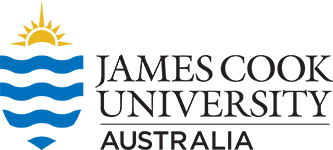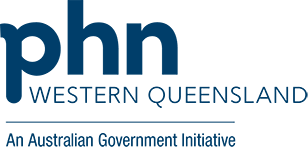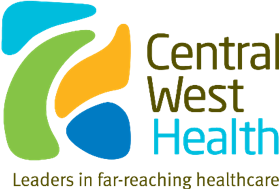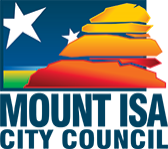Quicklinks
Rural Health Workforce Development
- Positive Placement Experience and Future Rural Practice Intentions: A Repeated Cross-Sectional Study (Investigators: Yaqoot Fatima, Stephanie King, Shaun Solomon, and Sabina Knight).
Health Improvement
- Association between inadequate sleep and cardio-metabolic outcomes (Investigators: Yaqoot Fatima, Isabelle Skinner).
- Women's action for Mums and Bubs (WOMB): A pragmatic trial of participatory women's groups to improve Indigenous maternal and child health (Investigators: Sarah Larkins, Judy Taylor, Yvonne Cadet-James, Ross Baille, Jane Farmer, N Passey, Catrina Felton-Busch, V Matthews, Emily Callander and Rebecca Evans in collaboration with Priscilla Page, J Kelly, Adrian Esterman, Merrick Zwarenstein, Robyn Preston, Karen Carlisle, Lynore Geia, Elaine Williams and N Turner).
Health Services Improvement
- Exploring Community Awareness of Health Promotion Activities Undertaken by the Mount Isa Living with Lead Alliance (Investigators: Sabina Knight, Isabelle Skinner, Yaqoot Fatima, Stephanie King).
- Discharge Against medical Advice: Views of Healthcare Providers (Investigators: Yaqoot Fatima, Niraja Rajeevan, Cho Cho Mar, Catherine Hays, Maureen Khan, Alice Cairns).
- Quality Improvement in Indigenous primary health care: the Leveraging Effective Ambulatory Practice (LEAP) project (Investigators: Sarah Larkins, Ross Baille, Paul Burgess, Emma McBryde, Kerry Copley, Rebecca Evans, V Matthews and Karen Carlisle, Catrina Felton-Busch).
- Project Title: Primary Care Presentations to the Emergency Department at Mount Isa Hospital: Enabling a Framework for better Primary Care Service Delivery in Mount Isa (Investigators: Sabina Knight, Yaqoot Fatima).
- Project Title: Evaluation of the Western Queensland Primary Health Network (WQPHN) Diabetes Collaborative (Investigators: Sabina Knight, Sarah Larkins, Karen Carlisle Rebecca Evans, Robyn Preston, Karen Johnston)
Innovation
- Stroke Survivors’ perspective on their recovery journey: the rural and remote North West Queensland experience (PhD Study: Sarah Jackson)
- Birthing on Mornington Island: culture, identity and our aspirations for the future (PhD Study: Catrina Felton-Busch)
Our Funding and Fellowships
NHMRC Funded Projects
Project Title: Women's action for Mums and Bubs (WOMB): A pragmatic trial of participatory women's groups to improve Indigenous maternal and child health Indicative funding of $1,766,215 over 5 years).
Investigators: Sarah Larkins, Judy Taylor, Yvonne Cadet-James, Ross Baille, Jane Farmer, N Passey, Catrina Felton-Busch, V Matthews, Emily Callander and Rebecca Evans in collaboration with Priscilla Page, J Kelly, Adrian Esterman, Merrick Zwarenstein, Robyn Preston, Karen Carlisle, Lynore Geia, Elaine Williams and N Turner
Project Title: Quality Improvement in Indigenous primary health care: the Leveraging Effective Ambulatory Practice (LEAP) project (Indicative funding of $1,129,210 over 3 years.
Investigators: Sarah Larkins, Ross Baille, Paul Burgess, Emma McBryde, Kerry Copley, Rebecca Evans, V Matthews and Karen Carlisle, Catrina Felton-Busch
HOT NORTH Career Development Fellowship (2018)
Project Title: Implementation and evaluation of an innovative student-led rehabilitation and lifestyle service in Northern Australia for Aboriginal and Torres Strait
Awardee: Dr Alice Cairns
Research Contracts & Consultancies
Western Queensland PHN funded project
Project Title: Primary Care Presentations to the Emergency Department at Mount Isa Hospital: Enabling a Framework for better Primary Care Service Delivery in Mount Isa (Indicative funding of $251,000 over three years).
Investigators: Prof Sabina Knight, Dr Yaqoot Fatima
Project Title: Evaluation of the Western Queensland Primary Health Network (WQPHN) Diabetes Collaborative (Indicative funding of $ $31,746).
Investigators: Prof Sabina Knight, Professor Sarah Larkins, Dr Karen Carlisle. Dr Rebecca Evans, Dr Robyn Preston, Ms Karen Johnston
Investigating the dynamics of migration and health in Australia: A Longitudinal Study
Using multiple rounds of panel data from the Building a New Life in Australia (BNLA) survey and longitudinal techniques, this will address the following key research objectives, which are central to our understanding of humanitarian migrants’ settlement:
- Investigate the economic settlement outcomes of humanitarian migrants
- Examine the sociocultural settlement outcome of humanitarian migrants
- Investigate the political settlement outcome of humanitarian migrants
- Examine access to and use of government and non-government services and welfare benefits and their contribution to economic, sociocultural, and political settlement of humanitarian migrants
- Examine the implications of findings for humanitarian migrants, settlement policy and practices of settlement and other support services.
Associate Professor Santosh Jatrana ( https://research.jcu.edu.au/portfolio/santosh.jatrana/ )is the Chief investigator on this Australian Research Council – Discovery Grant funded project (DP210101141). Professor Gilbert Gee from The University of California, Los Angeles is the Partner Investigator (https://ph.ucla.edu/faculty/gee).
ARHEN Quality of Student Placements Project
This project is being undertaken as part of a collaboration of researchers from several UDRHs across Australia. UDRHs, funded through the RHMT Program facilitate rural clinical placements to allow students to experience rural health practice, thereby encouraging them to join the rural health workforce after registration. Currently, understandings of the factors that contribute to quality rural clinical placements are based on broad, national recommendations. Therefore, there is a need to define “quality” regarding rural clinical placements to guide effective development, resourcing, and evaluation of these programs.
Attitudes and Practices Towards the COVID-19 Pandemic in Australia
This project involves follow up interviews from those initial participants who indicated their willingness to be involved in follow-up interviews in an online, primarily quantitative questionnaire. These interviews
were conducted by investigators across the institutions involved in the research. The opportunity to interview these participants about their attitudes and practices related to COVID-19 across different geographical classifications was timely and important. Thus, between 150 and 200 interviews were conducted to ensure sufficient coverage of the issues faced by different participants in the study.
The interviews covered the following broad themes aligned with the research questions:
- Concerns regarding the COVID-19 pandemic.
- Adherence to social distancing and hygiene guidelines.
- Additional changes to everyday life in response to the COVID-19 pandemic.
The results from this research study will be used to explore how the COVID-19 pandemic has been communicated and received and actioned by the Australian public. This can provide valuable information to inform public health policy when communicating future disease precautions in different Australian geographical locations (metropolitan, regional, rural, and remote areas).
Impact of COVID-19 on Rural Student Placements
University Departments of Rural Health (UDRHs) facilitate clinical placements in rural and remote settings throughout Australia for students enrolled in tertiary health courses. UDRHs support students to travel to rural and remote regions, provide accommodation, and ensure clinical learning needs are met for students to complete their rural placement. In 2019, the 16 UDRHs across Australia supported over 16,500 students (mostly in nursing, midwifery, and allied health) to complete a placement facilitated by a UDRH. In 2020, as many placements were planned but due to the risk of COVID-19, associated travel restrictions and the constraints within health services, many of these placements were altered, postponed or cancelled. This had repercussions for student progress through their university courses and the types of placements that were offered. Student responses to these placement changes were not well understood. As a result, UDRHs were interested in student experiences of their organised rural or remote placement during 2020. To this end, all 16 UDRHs agreed to participate in a study of students who had a placement organised by a UDRH.
The aims of the study were to:
- Identify student perspectives of impacts to UDRH-facilitated placements due to COVID-19;
- Identify student perspectives of UDRH-facilitated rural/remote placements during COVID-19; and
- Understand student experiences of UDRH-facilitated rural/ remote placements during COVID-19.













